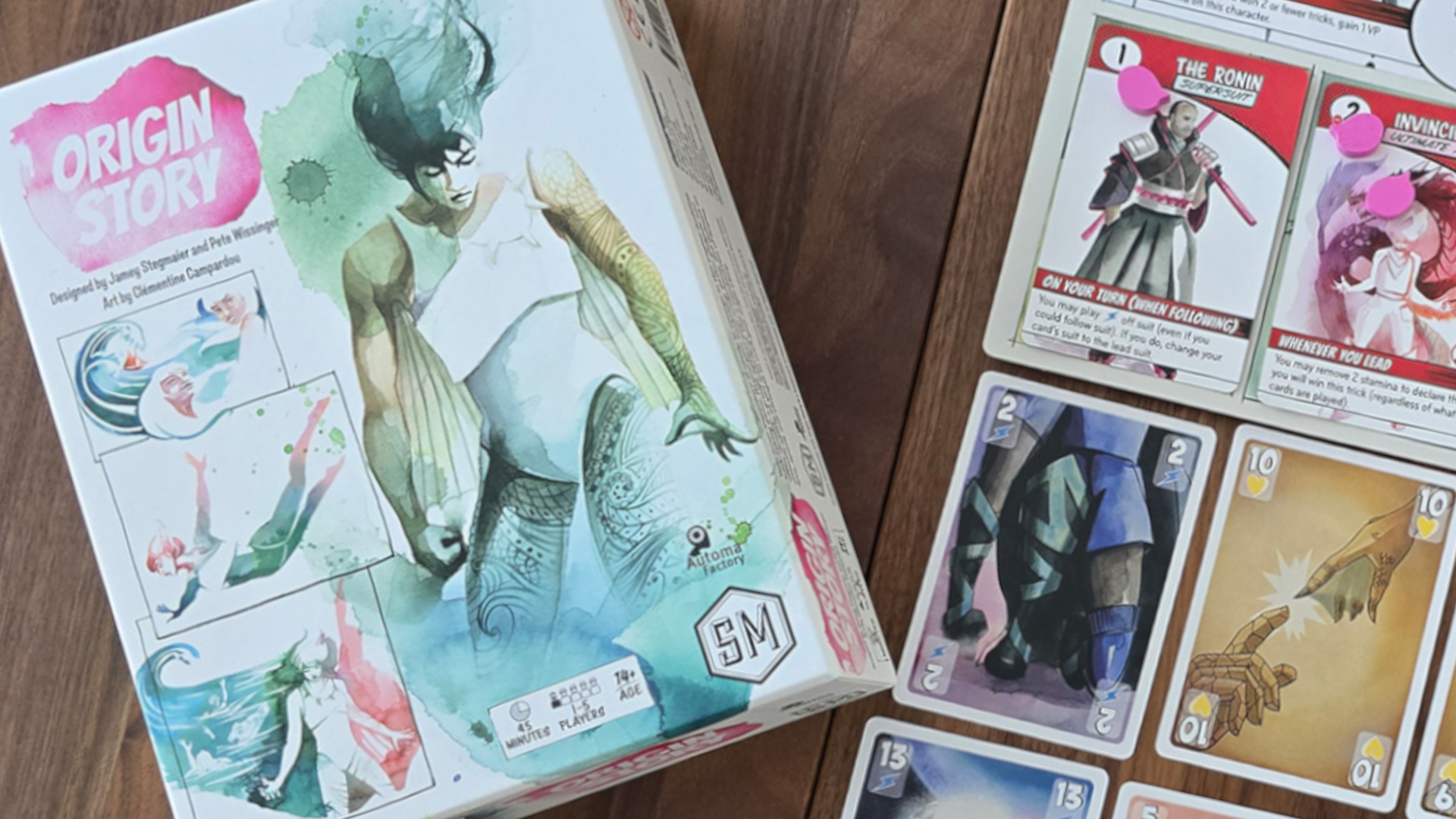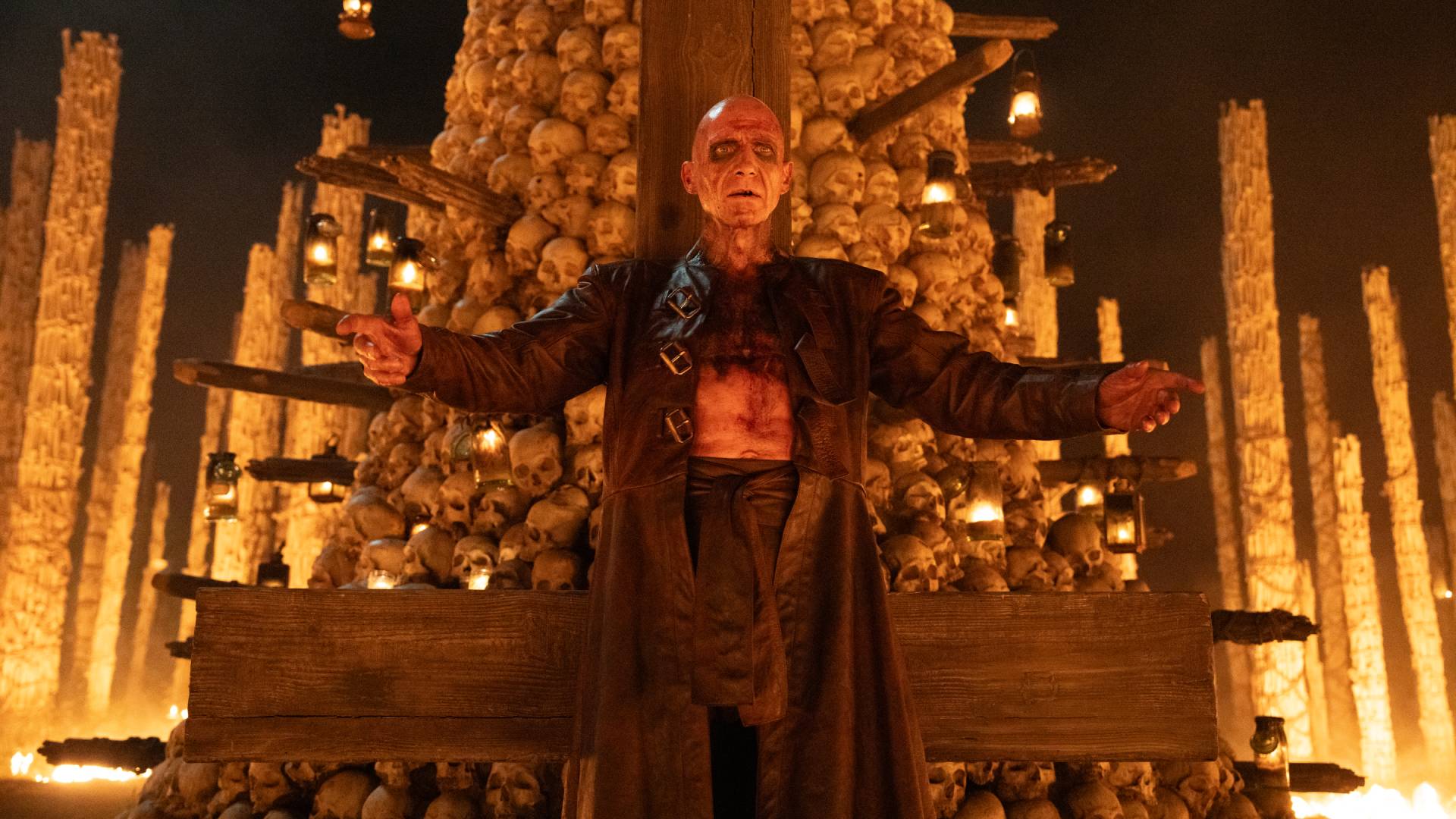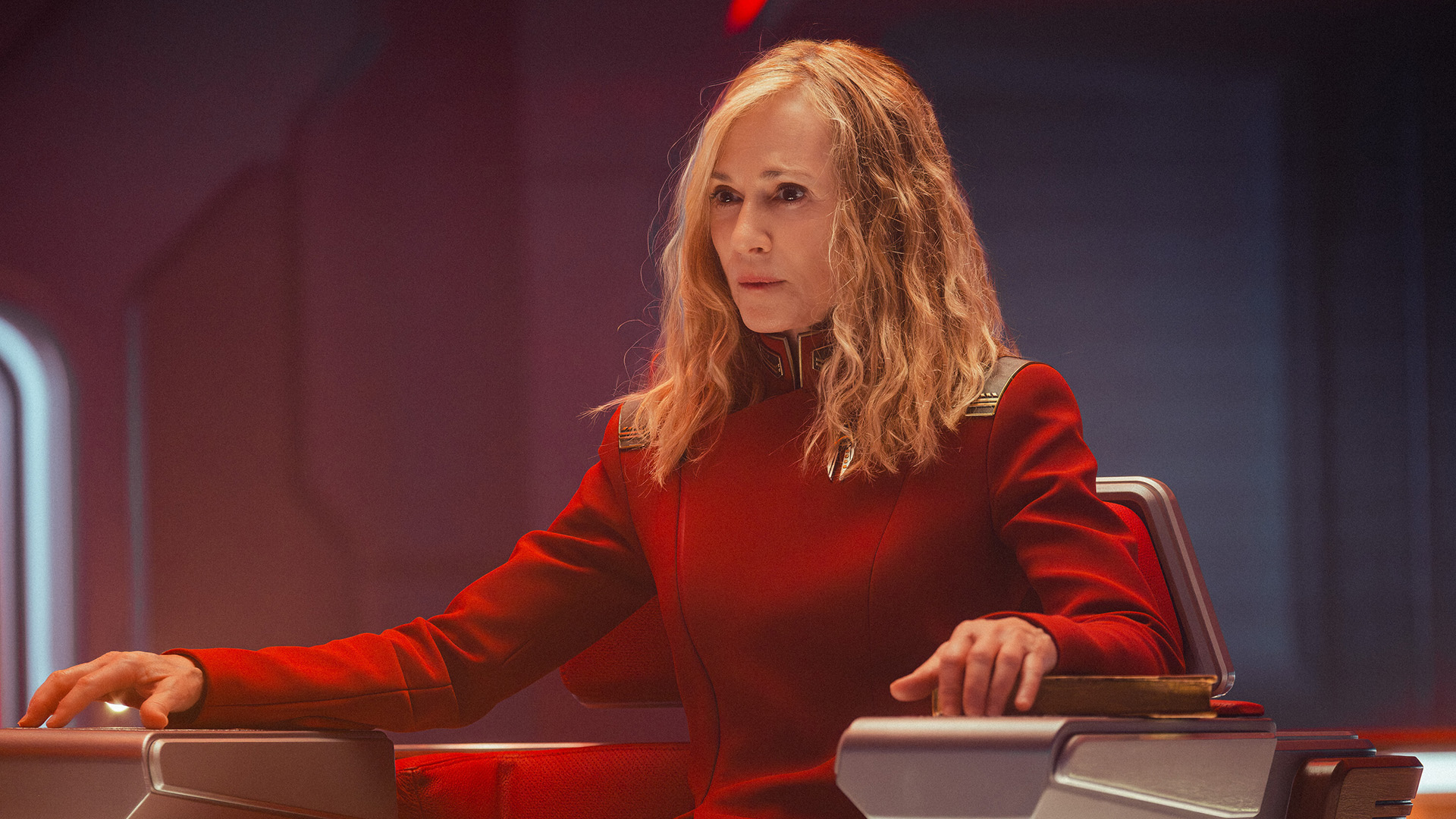Nintendo Switch 2 vs PS5: A battle of the console giants
The next era of the console wars is beginning. Let's see the tale of the tape.
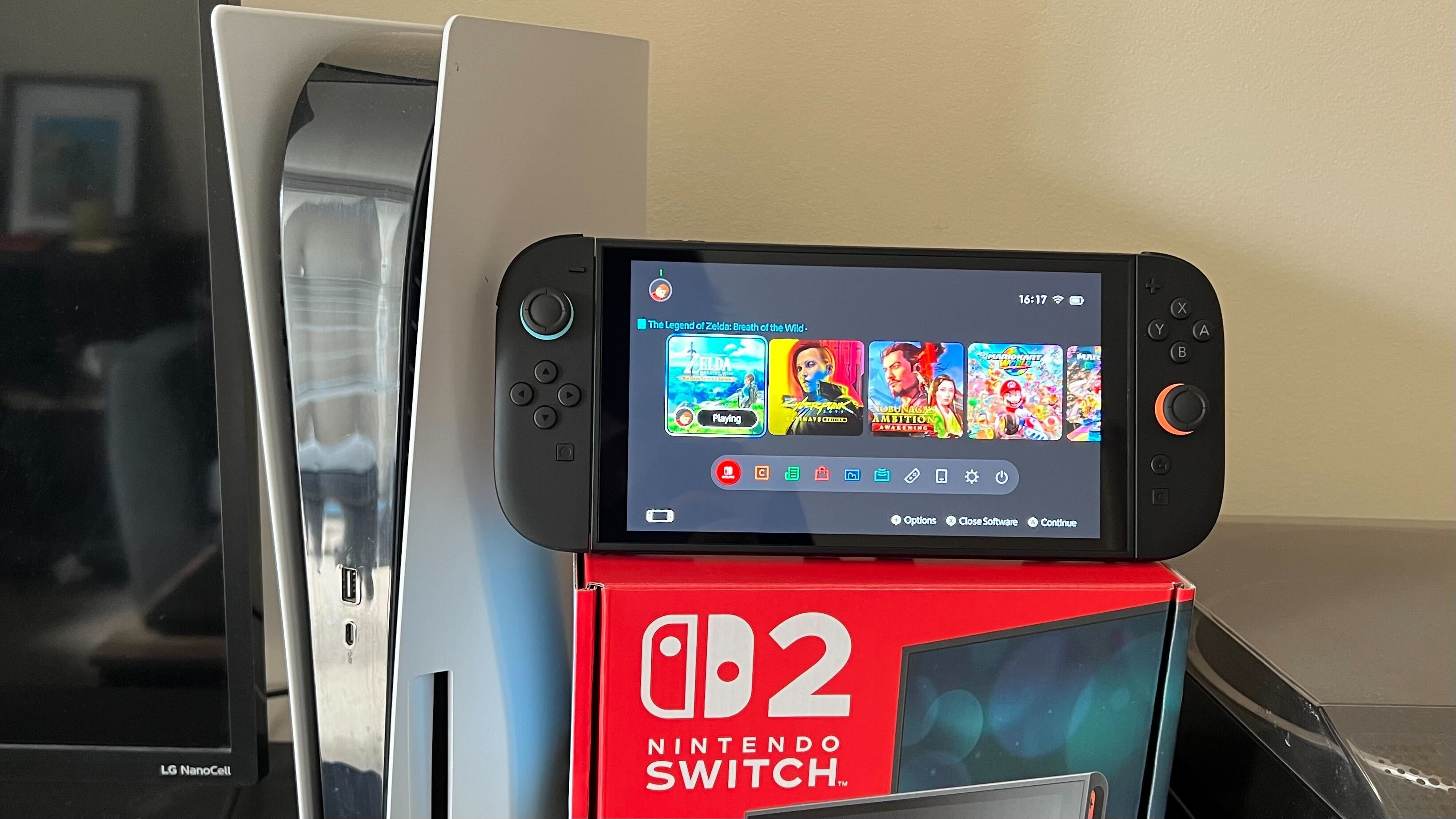
The Nintendo Switch 2 is officially here, and as Xbox fades into the shadows of the console market, PS5 stands atop the hill, ready to meet a new challenger. Naturally, these two platforms both have their separate appeals, so comparing them feels a bit like an apples-and-oranges debate. Still, if you're like us, you want to compare all the latest hardware to see what wins in a battle for supremacy.
Not to mention, this is a hotly anticipated war following on from the last console generation. The Nintendo Switch and the PS4 both became two of the best-selling game consoles of all time, so it's only natural that we size up the next era of hardware sales wars we'll be watching for the next couple of years. The PS5 has been on the shelves since 2020, so Nintendo has had nearly five years to watch on and prepare for the fight ahead. Of course, the PS5 was always going to be more powerful in terms of raw specs since it isn't trying to be something you take on the go.
But this isn't just a battle of raw specs. Game consoles today are pricey, especially if you have to balance their costs with rent, bills, food, pets, and even kids you're raising. The PS4 and the first Switch were a bit more affordable, which allowed more gamers to grab one of each after they had both been discounted. The PS5 and Switch 2 are both a bit more expensive, so you may find yourself choosing between one or the other. I'm here to break down the pros and cons of each in all the separate categories that matter, so read on to get the fight underway.
Price
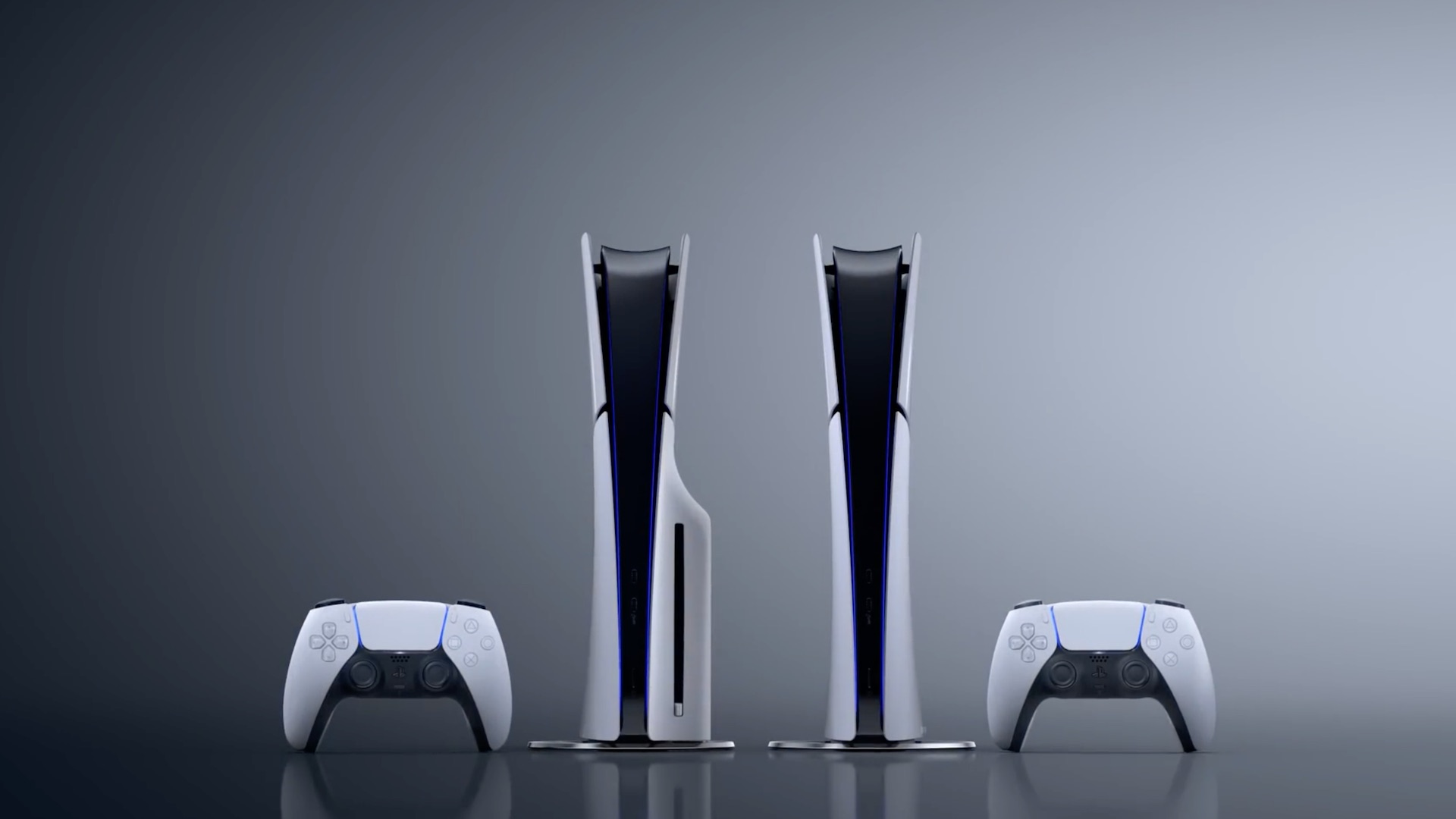
| Header Cell - Column 0 | Nintendo Switch 2 | PS5 Slim | PS5 Digital |
|---|---|---|---|
MSRP | $449.99 / £395.99 | $499.99 / £479.99 | $449.99 / £429.99 |
Record-low | $449.99 / £395.99 | $449.99 / £384.95 | $399.99 / £329 |
Since the first Nintendo Switch was the affordable kid on the console block, it's a little surprising to come straight out of the gate and realise that the PS5 is actually ahead of the Switch 2 in the pricing race. Sure, the PS5 Slim and PS5 Pro do take over from the Switch 2 as a premium option, but if you're looking for either console as cheap as they come, the digital edition of the PS5 is cheaper than a Switch 2. Moreover, the PS5 is older, which means it's more likely to get discounts more often. We've seen this in the past, and the record-low prices of both PS5 models can claim to be cheaper than the Switch 2.
This is a tough round to call, depending on what it is you're looking for from a console. The Switch 2 only has one edition so far, but it has a lot of versatility in its price tag. It's also cheaper than many of the opposing handhelds on the shelves with equivalent specs. The PS5's cheaper versions cut some of its versatility out, meaning if you want to play physical media, you'll need to spend more.
Portability
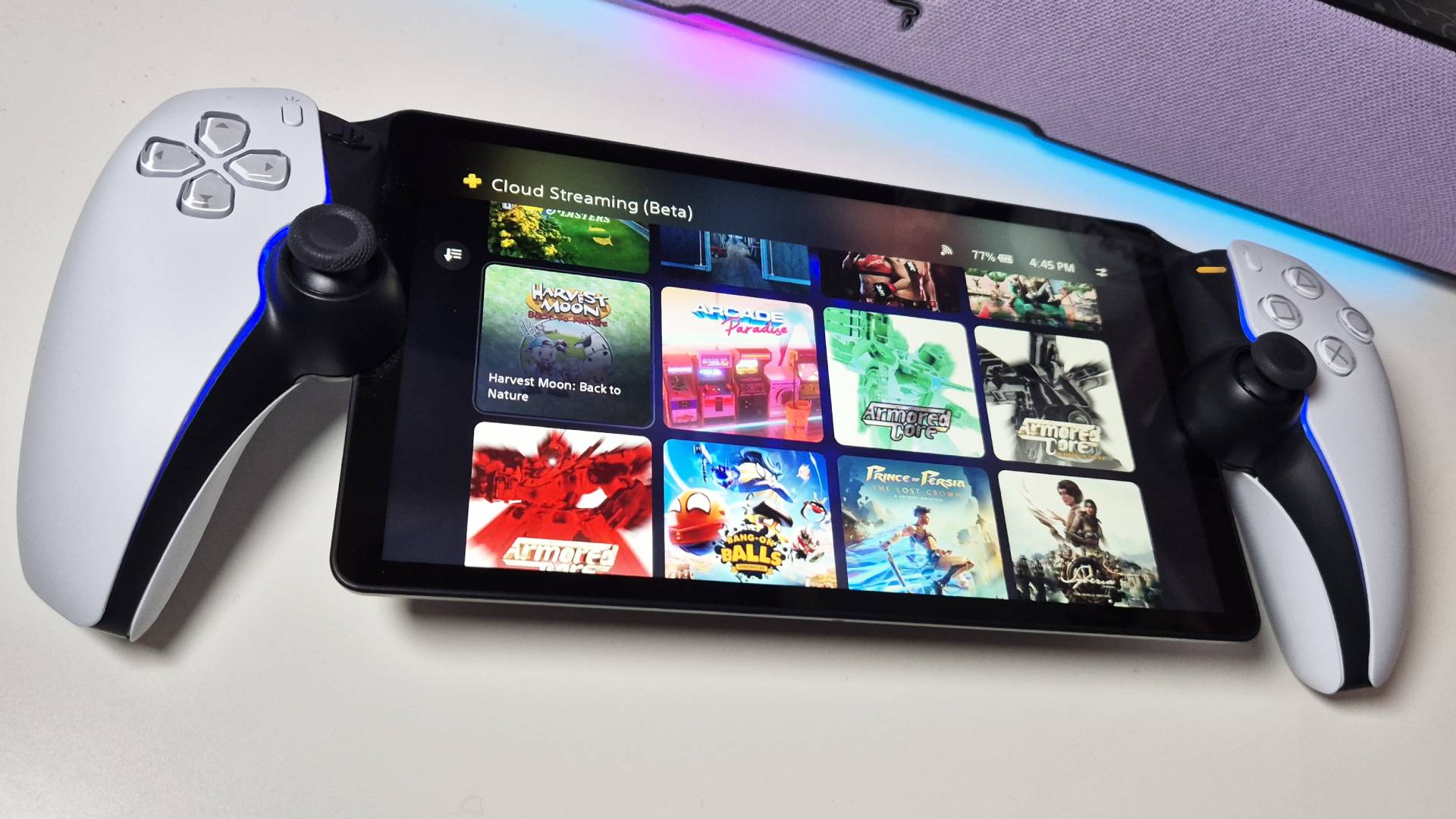
Nintendo Switch 2 | PS5 |
|---|---|
Fully portable | PlayStation Portal sold separately |
Playable offline | Portal requires internet connection |
This round goes the way you might expect, although it's not the clear-cut win that you might think. Certainly, since the first Switch launched, the PlayStation ecosystem has really upped its portable game to combat both the Switch's appeal and the growing best gaming handheld market.
The PS5 now has the PlayStation Portal, which, although sold separately, does allow you to take your PS5 gaming sessions on the go. Thankfully, cloud streaming on it is now a thing, meaning you're not just limited to Remote Play for a PS5 that has to be on while you play in another room or when you're out and about. Not only do we have the PlayStation Portal, but Remote Play via one of the best mobile controllers is also an amazing way to keep playing when you can't make it to the couch. It's annoying that PlayStation Plus doesn't have the same cloud streaming credentials as Xbox's Game Pass, though.
Weekly digests, tales from the communities you love, and more
As valiant an effort as that is, PS5 doesn't really stand up properly to the Switch 2 if you're looking for a truly versatile, from-the-ground-up portable experience. The Switch 2 is a handheld device first and foremost, so it's naturally going to win the portability contest. Just like the original Switch, the versatility here is almost unmatched, especially due to the detachable Joy-Con controllers.
Comfort
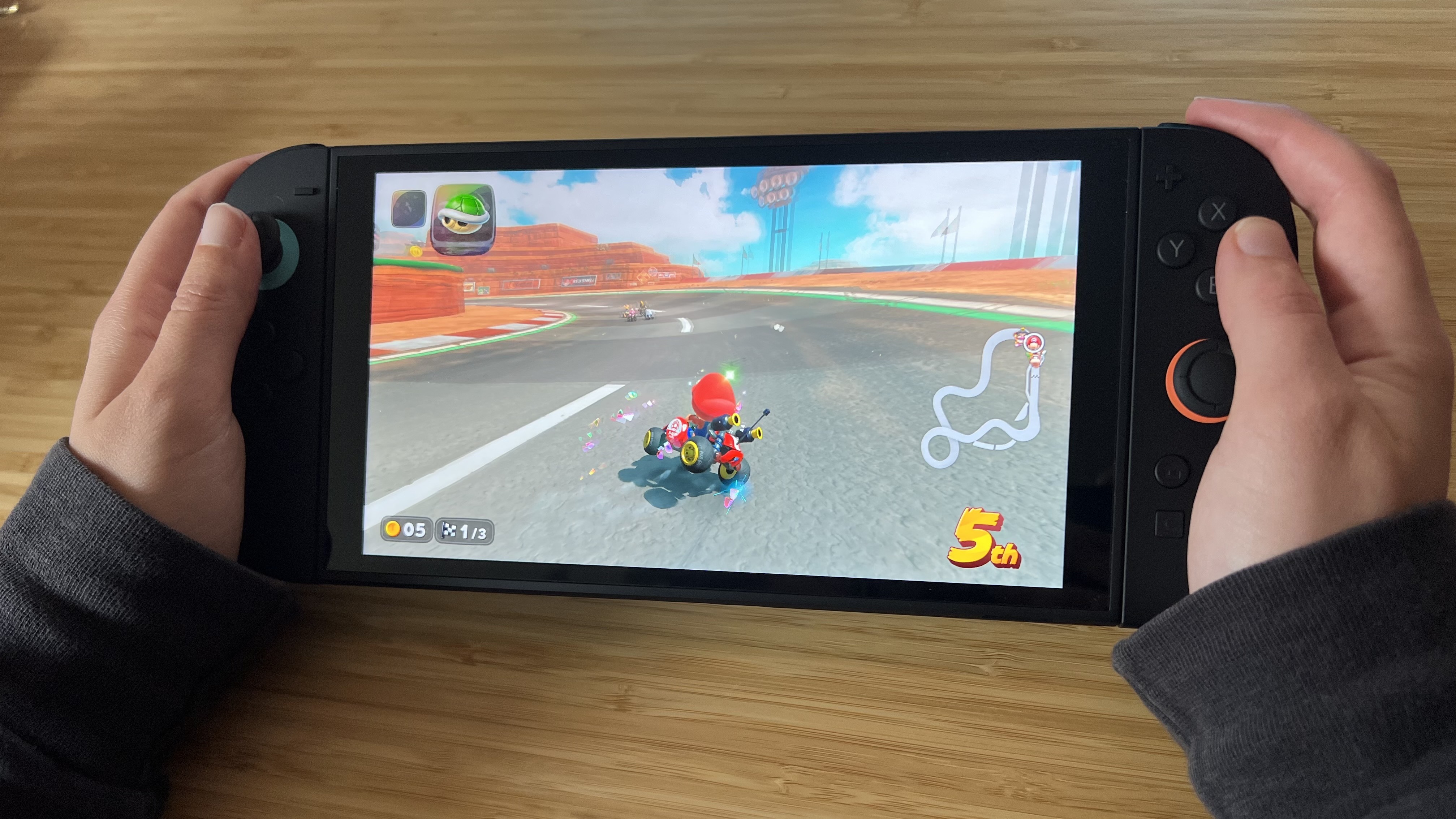
Nintendo Switch 2 | PS5 |
|---|---|
Thinner controllers | Thicker grip style |
Asymmetrical thumbsticks | Symmetrical thumbsticks |
Matte surface | Textured surface |
Lighter Pro Controller | Heavier DualSense controller |
A few of these rounds come down to personal preference, but maybe none more so than comfort.
Depending on what you prefer, the Switch 2 and PS5 can both be plenty comfortable to use in longer sessions. I'm going to say that for most people who want a traditional console-on-the-couch experience, the PS5 is going to be a better stay-at-home setup since that's what it's designed to do. At the same time, its controllers are a bit larger, they're more rounded, and thus far, there are more of them. If you prefer a heavier controller, the DualSense and DualSense Edge have a bit more substance to them, not least because of their haptic feedback and trigger resistance.

In handheld mode, the Switch 2's increased size over the original Switch makes it a bit easier to hold. Similarly, its new matte texture feels a bit more premium than the first Switch, but does make it a tad slippier. It does feel like Nintendo has missed a trick in upgrading the comfort of Switch 2 when you compare it to the more recent handheld PC rivals it now faces on the shelves. Having some rounded grips, back buttons, or a slightly bulkier design may not be as appealing as the slimline design of the first console, but it'd make it a lot more comfortable to hold for longer periods of time.
It's also a shame that the Switch 2 kept its asymmetrical thumbstick layout, since this brought in some discomfort for people, namely, thumb cramps. The offset vs symmetrical thumbstick debate has been raging on for decades, so I'll let you decide what you prefer, but certainly in handheld devices, we've noticed that the more recent options like the Nitro Deck+ and Scuf Nomad, which have symmetrical sticks, are much more comfortable.
Display
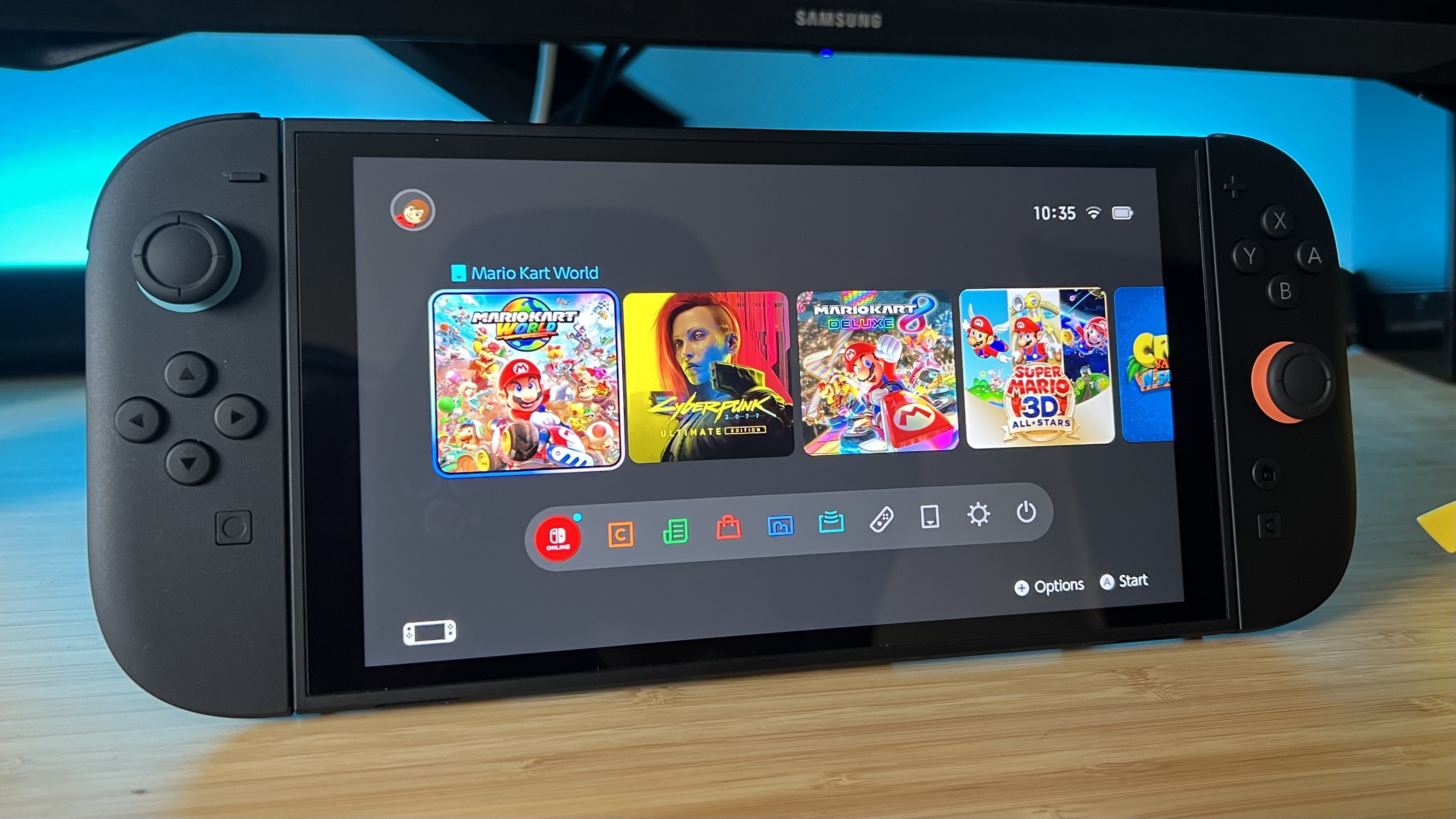
Nintendo Switch 2 | PS5 |
|---|---|
4K when docked / 1080p in handheld mode | 4K resolution |
4K 60Hz refresh rates when docked / 120Hz when in 720p docked / 120Hz 1080p in handheld mode | Up to 120Hz refresh rates |
Since the PS5 doesn't actually have its own display, this is another comparison of apples and oranges. The Switch 2's enlarged display now supports 1080p resolution, which is more than the Steam Deck can say. It's an LCD, HDR-compatible screen that has a 120Hz refresh rate. That makes for some really smooth handheld gaming and gives some of the handheld gaming PCs like the Asus ROG Ally X a run for their money.
In docked mode, things change, however, since the Switch 2 can only handle 4K 60fps, which is a bit limited compared to the PS5, which can boot 4K games out at your eyeballs at up to 120Hz, so long as you have a compatible display.
PS5 has more power under its hood, so for those looking to max out the visual fidelity that's possible on a console, the PS5 is the clear choice. However, in handheld mode, the Switch has an impressively vivid display despite not opting for an OLED panel.
Controls
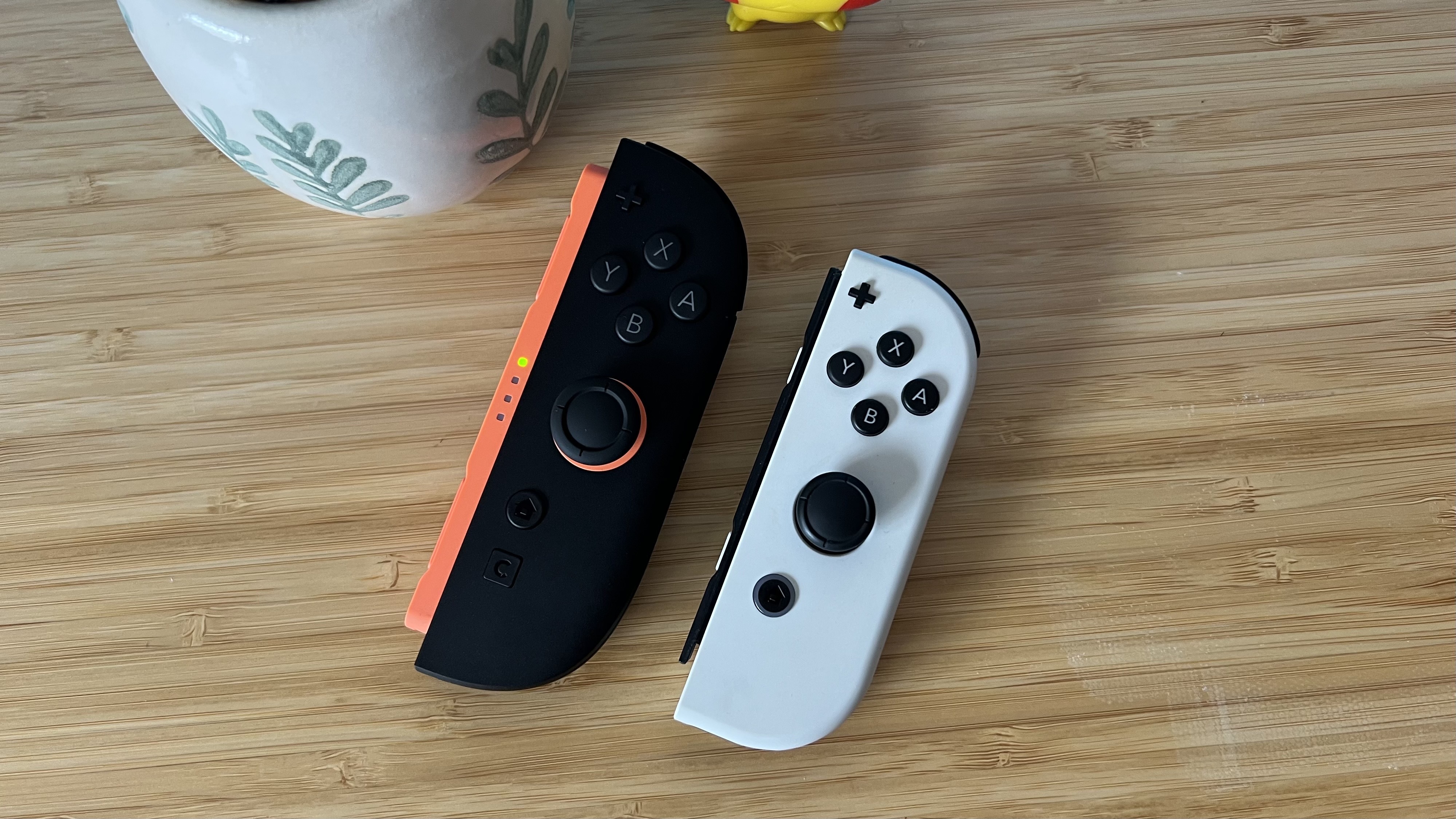
Nintendo Switch 2 | PS5 |
|---|---|
Detachable Joy-Con for multiplayer | Multiplayer requires separate purchase |
Shorter thumbsticks | Taller thumbsticks |
Smaller face buttons | Larger face buttons |
Separate directional buttons | Separate directional buttons |
Smaller bumper and trigger buttons | Larger bumper and trigger buttons |
No back buttons | No back buttons |
HD Rumble 2 | More advanced haptics |
Gyro controls | Gyro controls |
Mouse controls | Limited external mouse support |
Both consoles have their wins in this category. The Switch 2's controllers are versatile, probably more than any other gaming platform around today, if you don't count the Lenovo Legion Go. The Joy-Con 2 controllers are easy to use in handheld mode, in a more comfortable grip for a traditional gamepad feel, or to flip on their side, pass to a friend, and use in multiplayer. That versatility does put the PS5 to shame, since playing multiplayer will mean an additional purchase of a separate controller, which doesn't come in the console's box.
The Switch 2 also has an official pro controller, and probably an accumulating line of officially licensed third-party controllers in the pipeline. The official one has back buttons, but doesn't seem to change too much compared to the original Switch's Pro pad.
There's one big potential issue with the Switch 2's controls, though, and only time will tell if it's going to cause trouble this generation.
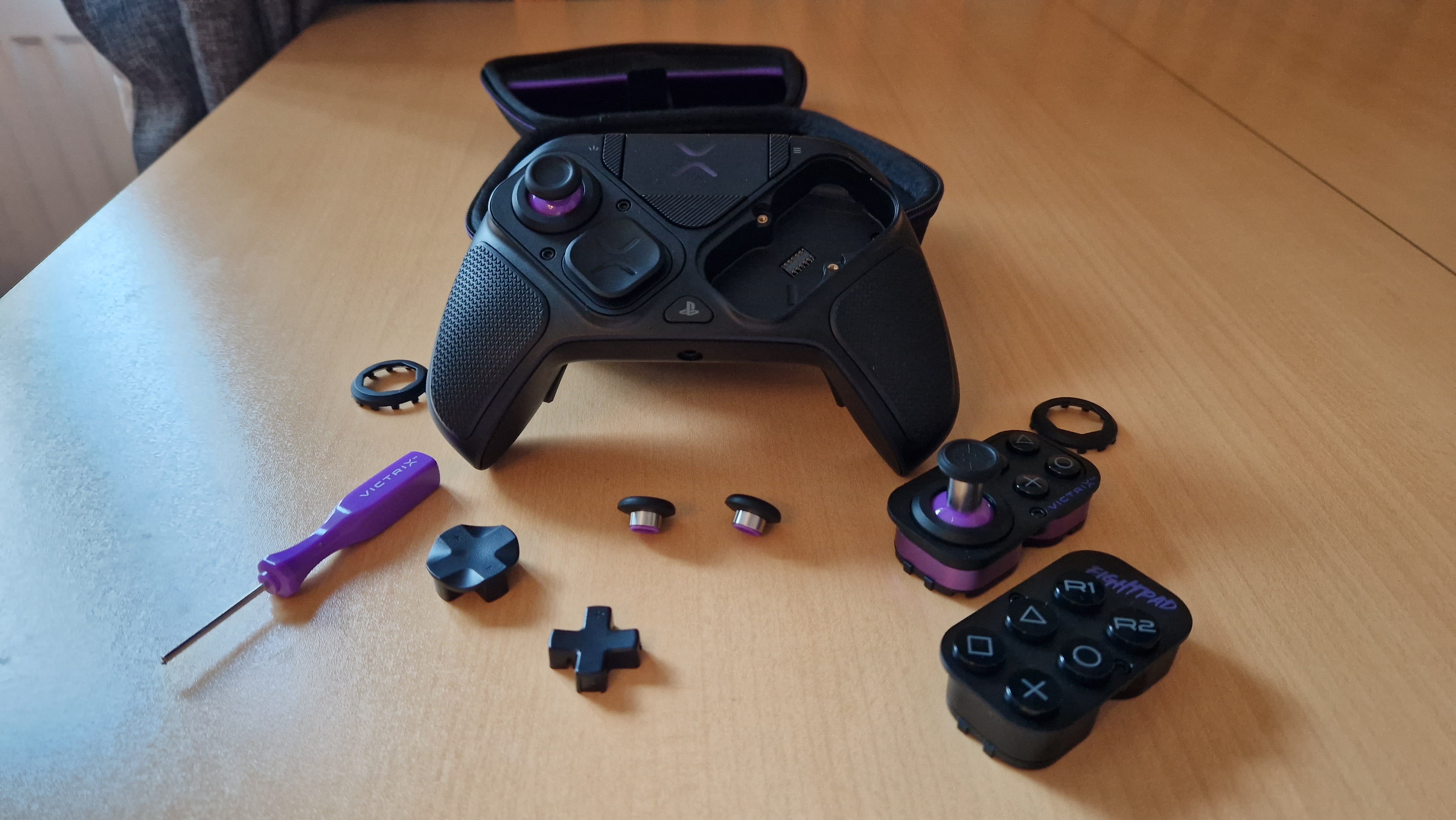
Nintendo hasn't been able to get the words "Hall Sensor" out of its mouth in the lead up to Switch 2's launch, and that's not exactly encouraging when its last generation of controllers have been plagued by stick drift. Even if the Joy-Con 2 controllers and the official Pro Controller have been redesigned from the ground up, it's hard to imagine that if Nintendo wasn't using a stick drift-immune technology here, it wouldn't make a show of it.
Then again, it's not as though the PS5's DualSense hasn't been plagued by this issue either. Fortunately, Sony's gamepad has a lot more going for it in the way of haptic feedback and trigger resistance, which may not be as versatile as the Joy-Con's motion controls or funky new mouse controls, but certainly do a lot to ground you in virtual worlds when implemented properly.
Looking into the best PS5 controllers, you can actually see plenty of versatility if you're willing to pay extra for it. There's the Access controller, there are guitar controllers, there's an upcoming fight stick, and there are excellent Esports controllers like the Victrix Pro BFG as well.
Connections
Nintendo Switch 2 | PS5 |
|---|---|
2x USB-C | 2x USB-C |
2x USB-A ports | 2x USB-A |
HDMI 2.0 | HDMI 2.1 |
Ethernet | Ethernet |
3.5mm audio | 3.5mm audio via controller |
Bluetooth | Bluetooth |
Wi-Fi 6 | WiFi 6 |
As you can see from the table above, the connection battle is pretty close between the Nintendo Switch 2 and PS5. Honestly, this one might be a clear-cut draw, because even when you take accessory possibilities into account, both platforms have their strengths.
Potentially, PS5 does sneak past in this round thanks to its HDMI 2.1 compatibility, which allows for higher refresh rates at 4K. For the most part, however, this is a close call.
Games
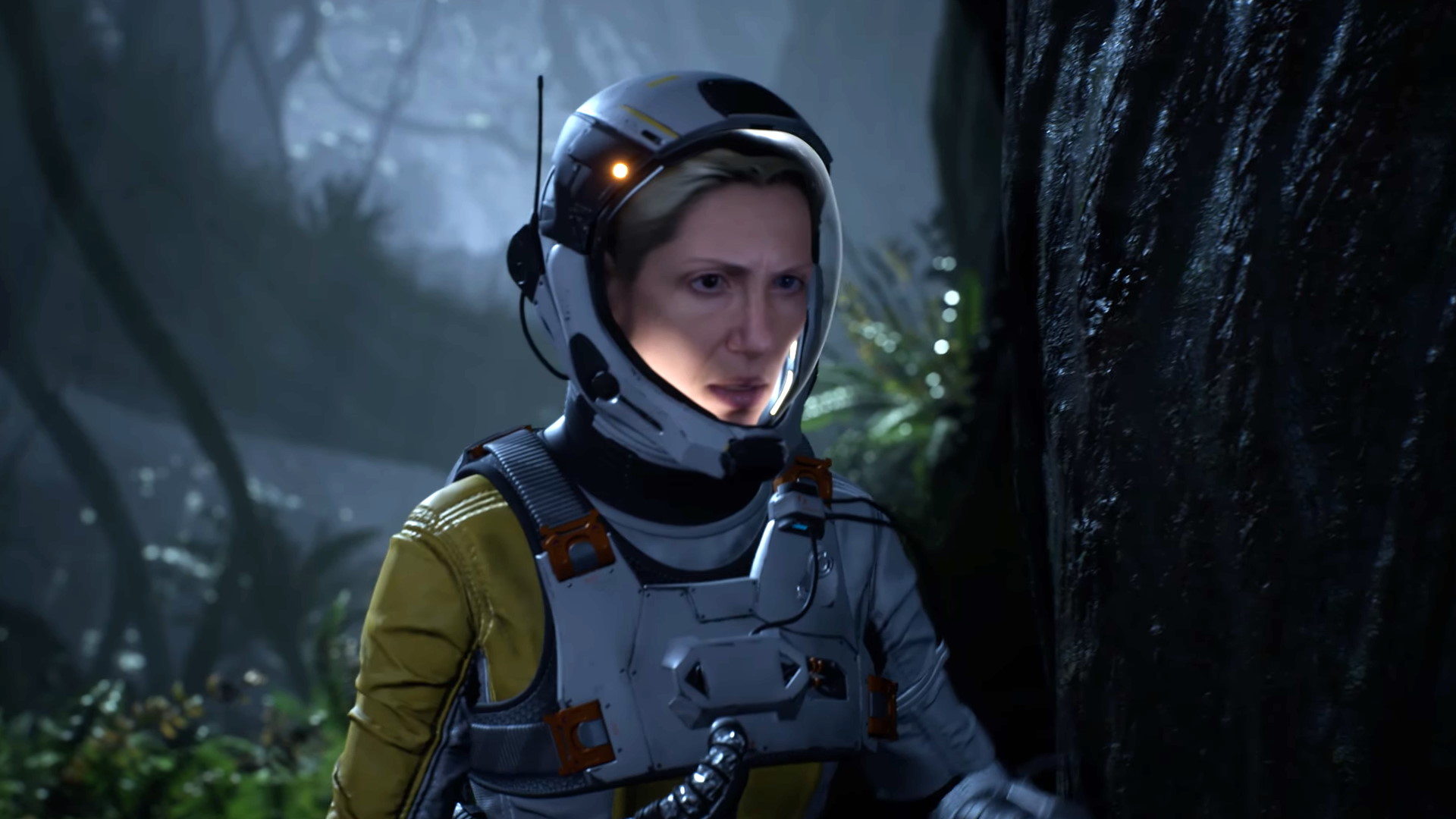
Nintendo Switch 2 | PS5 |
|---|---|
Nintendo Switch 2 Exclusive games | PS5 Exclusive games |
Backwards compatible with Switch catalog (mostly), plus virtual consoles through an online subscription | Backwards compatibility with PS4 and PlayStation Classics catalog (for and extra fee) |
Locked to Nintendo eShop | Locked to PS Store |
Physical games available | Physical games available (for disc version) |
Both the PS5 and Nintendo Switch 2 feature backwards compatibility with their previous generations. The PS5 can play PS4 games, the Nintendo Switch 2 can play original Switch games. Both seem to have gone about this problem in similar ways, by making the large base of games compatible with the new-gen hardware, but by opting for paid "next-gen upgrades" for some of the heaviest hitters.
There have been PS5 exclusives this generation, but Sony has put more of an emphasis on remasters and remakes, as well as third-party publishing and acquisitions for them to now call their own. From the standout first-party family that arguably won Sony the PS4 generation, things haven't been quite as exciting, and even Spider-Man 2, Horizon Forbidden West, and God of War Ragnarok felt very similar to the last-gen entries we had seen already. Newcomers like Returnal and Helldivers 2 have been standouts, and we're still awaiting new work from Naughty Dog and Sucker Punch this generation. Remasters of Horizon Zero Dawn, The Last of Us (parts 1 and 2), Days Gone, Demon Souls, Horizon Zero Dawn, and more have shown that Sony is happy riding on the coattails of its previous successes.
At the same time, its investment in live service has left a lot to be desired, with Concord being the biggest showing of how that's gone.
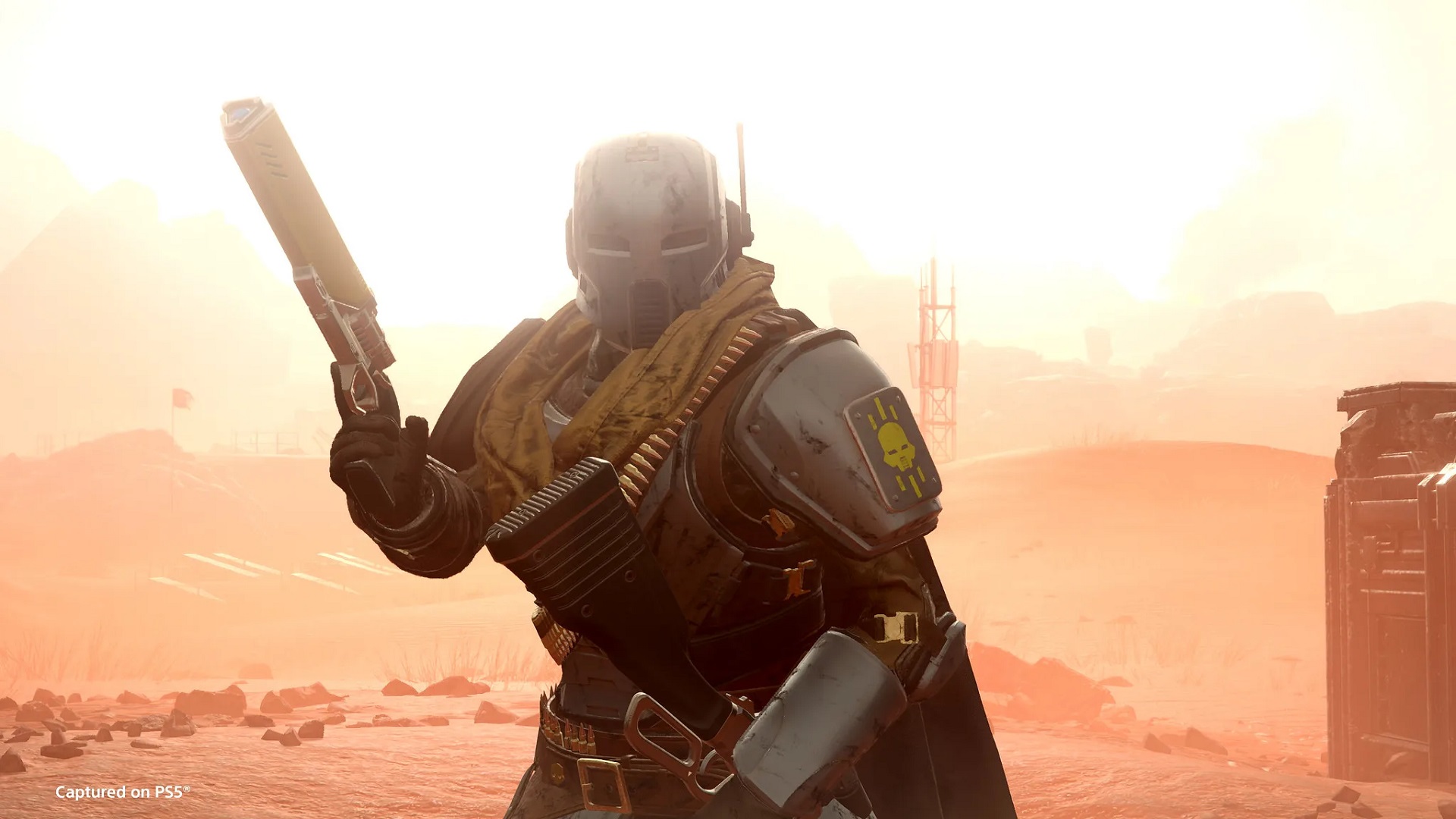
Switch 2 Editions of games like BOTW and TOTK seem to be taking a similar approach, and although we've started the generation off with Mario Kart World and the first 3D Donkey Kong game in decades, mainline Mario and Zelda games feel like they're missing from the launch lineup. These will undoubtedly arrive in the next few years, but it'll be interesting to see just how much onus is now going to be put on remaking what's come before with the Switch 2.
Something else to consider is that Sony has opened its doors this generation, bringing its new releases to PC players. It's very much following the footsteps of Xbox, which has made its games (even the supposed exclusives) available on everything with an internet connection. In fact, Nintendo now enters the fray as the last bastion of exclusive platforms in the games industry. It'll be interesting to see how that impacts the brand going forward, but it means that the Switch 2 is the only place you can play Nintendo games. If you want to play PS5 or Xbox games, you can play on a PC and not miss too much.
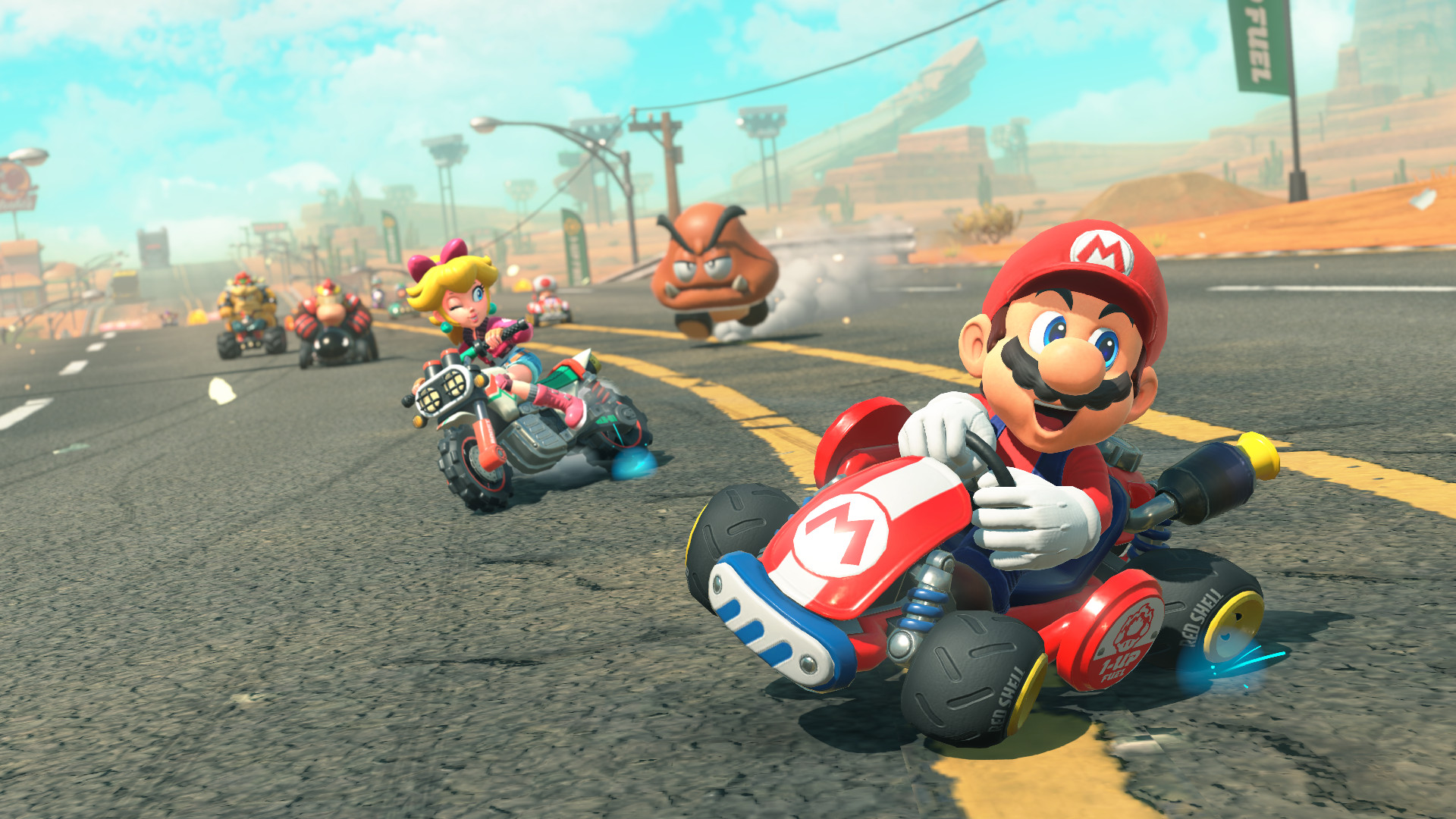
Remember also that both platforms have their online subscriptions. PS Plus gives you access to three free games every month, as well as a catalog of classics and current-gen games to download and play. Switch, on the other hand, only gets you virtual console libraries from previous eras.
All told, this round has a lot that remains to be seen. It may well come down to the Switch 2's performance in third-party games. Third-party support for the PS5 is already set in stone at the moment for the majority of games that come out. The first Nintendo Switch started out great with its third-party support, but the limitations of its hardware let it down after a few years, with fewer and fewer demanding titles making the leap across to Nintendo's platform. Indie support, however, has always been good on the Switch, but the same is true of PS5 as well.
Performance
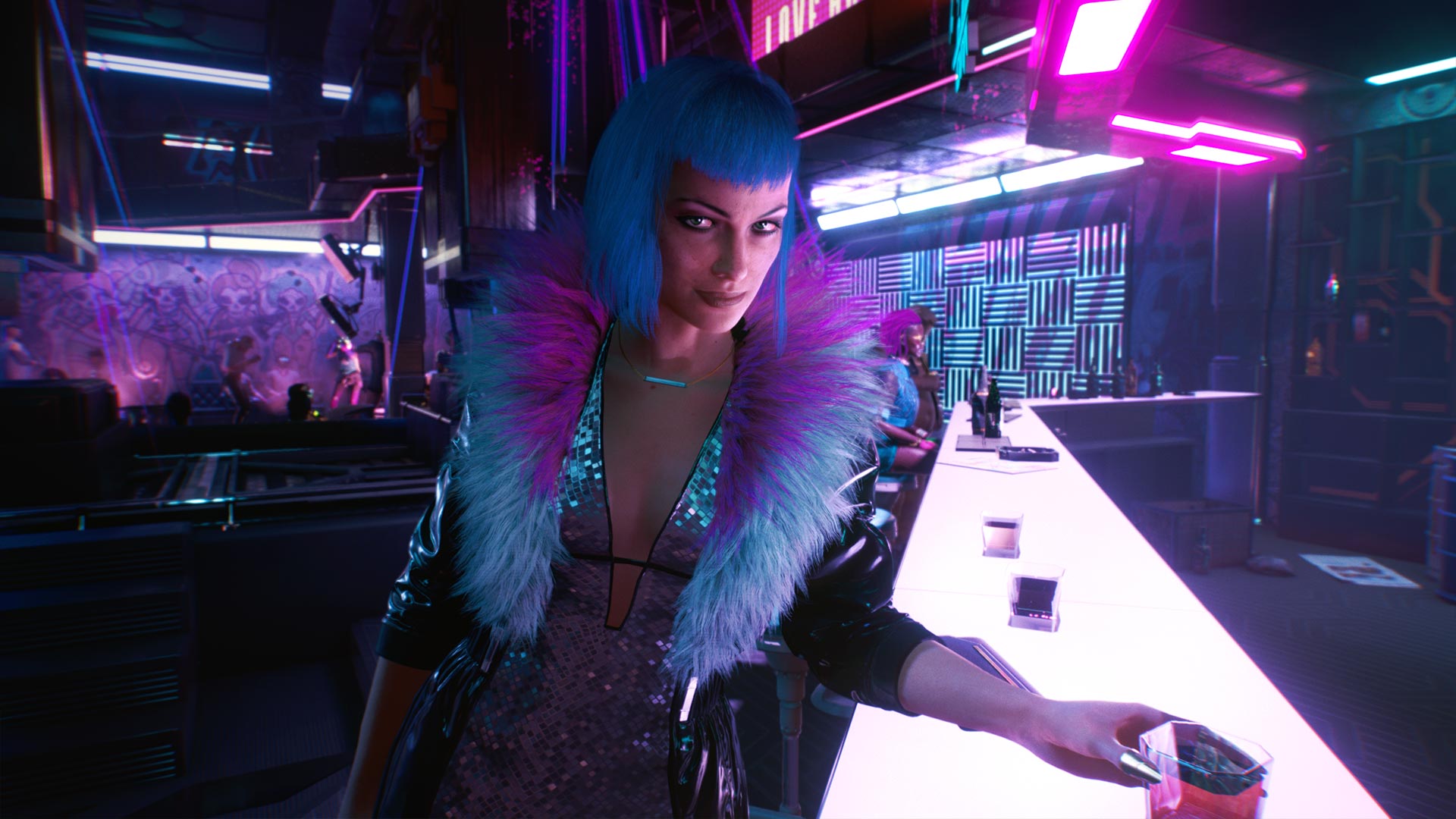
The Nintendo Switch 2 was never going to be able to compete with the PS5 from a performance perspective. Playing Cyberpunk 2077 on each one, side-by-side, reveals the weaker hardware at play from Nintendo. This is still impressive performance - the device is a fraction of the size of the PS5, and it's running a game that gave the PS4 some trouble just a few years ago.
If, however, you're looking for docked-only gameplay and want the best textures, most sophisticated ray-tracing, and the highest quality distance rendering, the PS5 makes far more sense.
The Nintendo Switch 2 is still zippy in these harder performance tests - in fact, I've been surprised by just how smooth action feels in both handheld and docked modes. It's just not quite got the power grunt behind it that the PS5 does.
In real-world terms, that means a drop in sharpness and detail, especially across more complex objects like faces and hair. The difference isn't as large as you might expect from a handheld, but it's certainly still there.
Storage
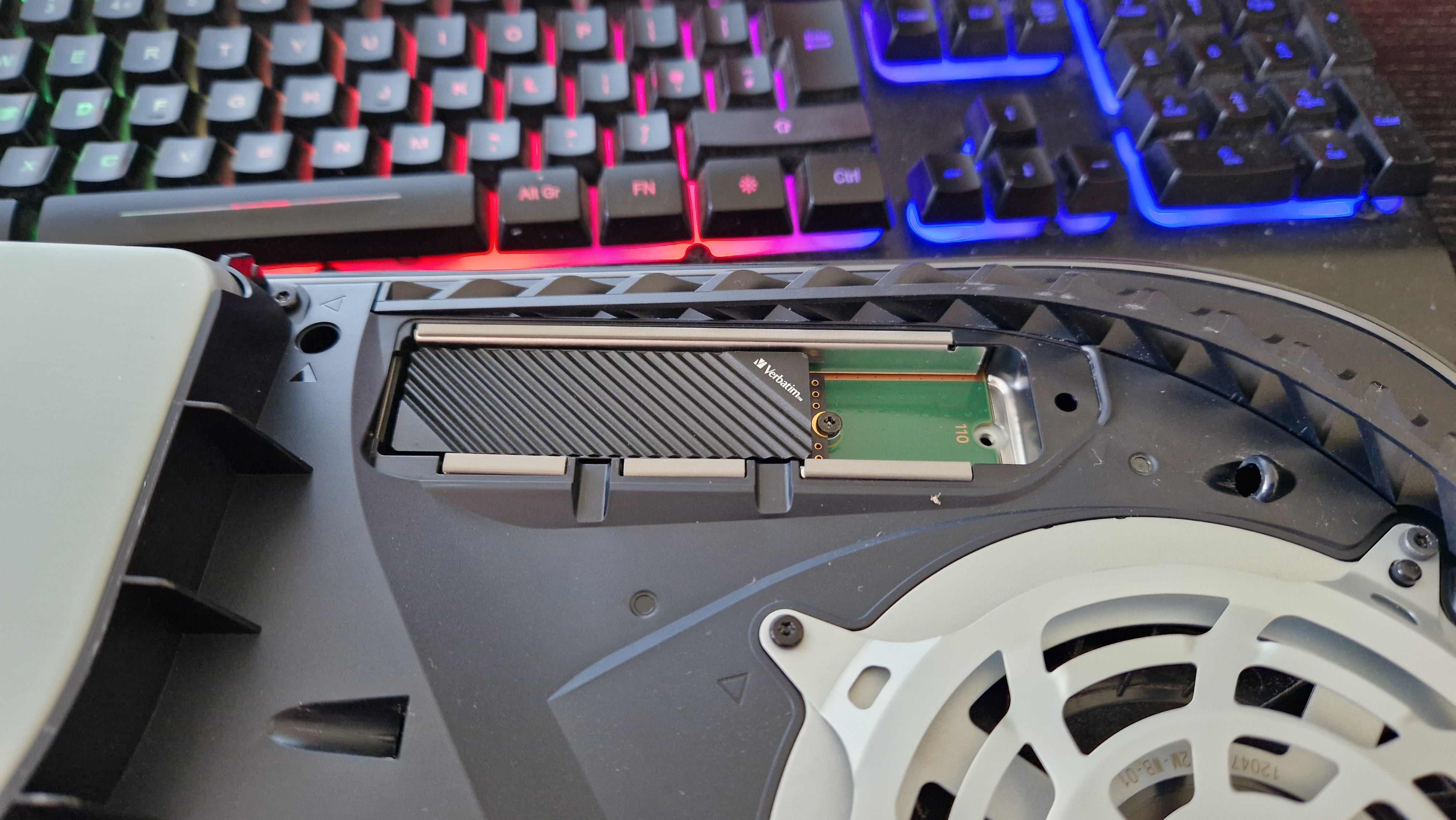
Nintendo Switch 2 | PS5 |
|---|---|
256GB internal storage | 1TB internal storage |
Additional storage up to 2TB (MicroSD Express) | Additional storage up to 8TB (M.2 SSD) |
The Switch 2 puts up a solid fight in this round thanks to its up to 2TB of additional storage, but the PS5 has storage supremacy thanks to its additional M.2 port. Even without that, the close to 1TB of space you get out of the box means you have plenty of space for those beefy 4K game files.
That brilliantly integrated extra storage slot means you can put any Gen 4 SSD inside the PS5 and benefit from its loading times. Storage and fast loading times are one of the hills PS5 has always been willing to die on, so it's no surprise that this was a feature the brand wanted to ensure was there. With up to 8TB of extra space thanks to the best SSDs for PS5, Sony takes this round in a clear victory.
Nintendo Switch 2 vs PS5: which should you buy?
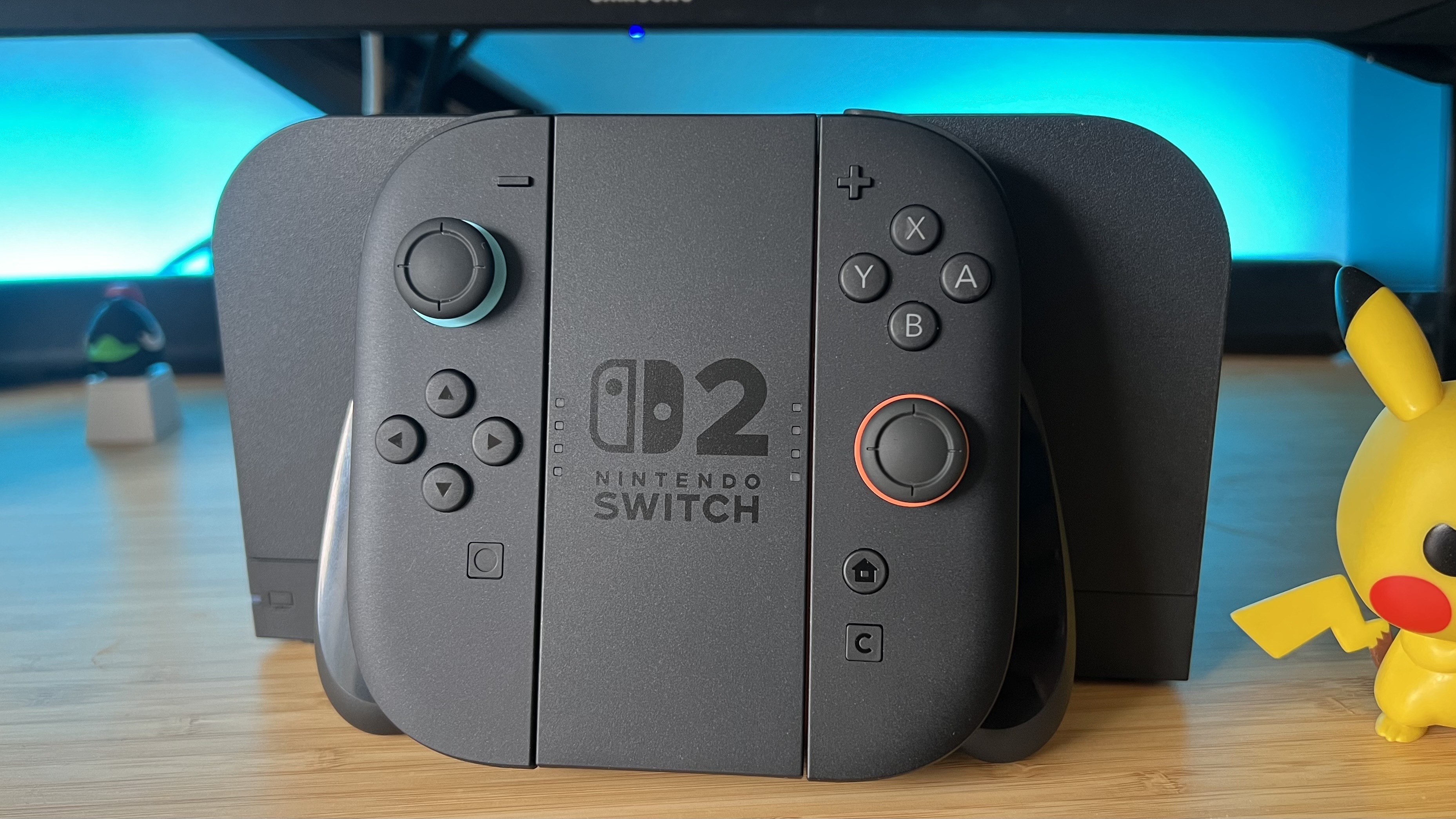
All in all, this is actually a pretty close race. In the end, it's going to come down to you, what your playing habits are, and what games you simply can't do without.
If you play mainly on the go, or you just can't miss the next entries in some of Nintendo's biggest franchises, a Switch 2 is the only place you'll be able to get that truly portable experience you can take with you. It's also the only place you'll be able to play those games because Nintendo refuses to move into the current era with the rest of the gaming industry.
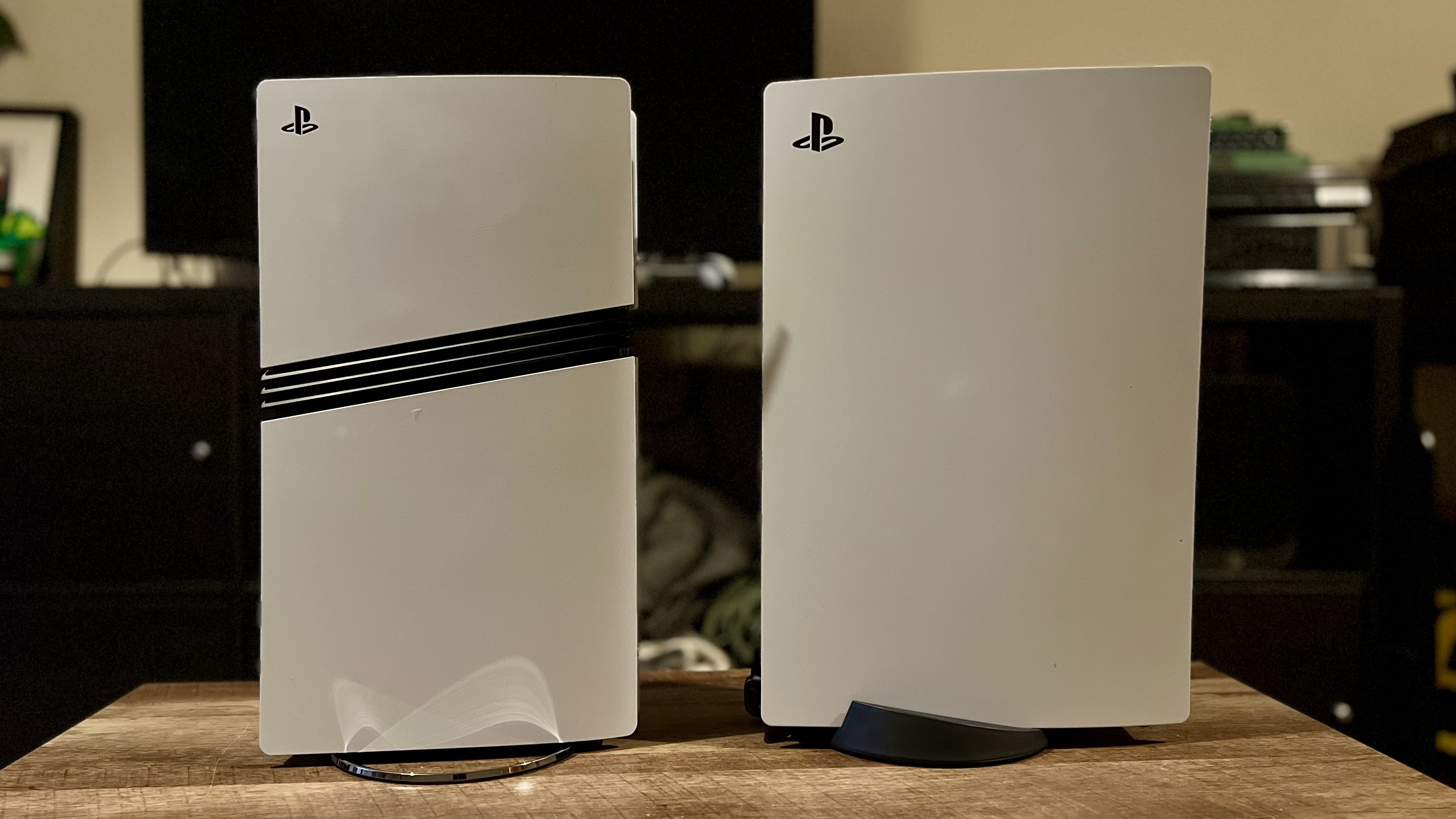
If you mainly play at home but still want some portability options, the PS5 is going to be the better option. It has higher resolution and frame rate capabilities, more power under its hood, and has been designed as a home console more than a do-it-all and do-it-everywhere device. Moreover, if you want to ensure you have a gaming platform for all sorts of third-party games, and don't want to risk not having access to these titles (or not waiting a year or more for a seriously downgraded version), then the PS5 is your winner.
Luckily, both have their merits in terms of price, and there's a close call in many of the rounds we've listed above. Console gaming has two serious contenders with the PS5 and Nintendo Switch 2, and in a few years, it'll be very intriguing to see how the two platforms sell against one another and compare to the successes of the PS4 and Switch race.
For more on Nintendo's new console, check out the best Nintendo Switch accessories, the best Nintendo Switch controllers, and the Nintendo Switch Vs Switch OLED.
One of my earliest memories is playing SuperMario64 and wondering why the controller I held had three grips, but I only had two hands. Ever since I've been in love with video games and their technology. After graduating from Edinburgh Napier University with a degree in Journalism, I contributed to the Scottish Games Network and completed an Editorial Internship at Expert Reviews. Over the last decade, I’ve been managing my own YouTube channel about my love of games too. These days, I'm one of the resident hardware nerds at GamesRadar+, and I take the lead on our coverage of gaming PCs, VR, controllers, gaming chairs, and content creation gear. Now, I better stop myself here before I get talking about my favourite games like HUNT: Showdown, Dishonored, and Towerfall Ascension.
- Tabitha BakerManaging Editor - Hardware
You must confirm your public display name before commenting
Please logout and then login again, you will then be prompted to enter your display name.
